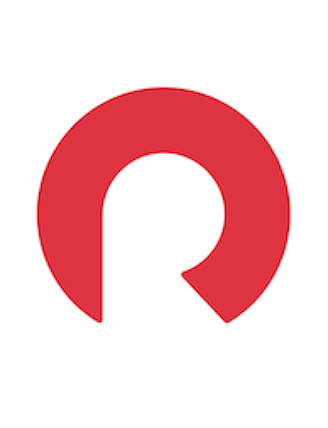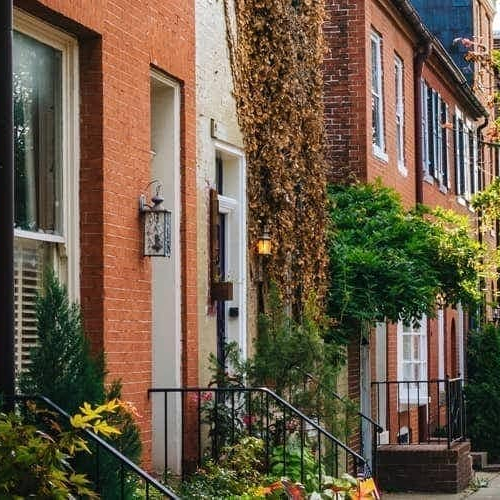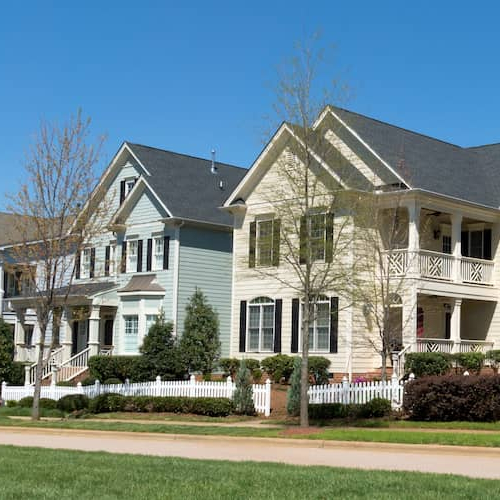Is a mortgage secured or unsecured debt?
Contributed by Sarah Henseler, Tom McLean
Jun 25, 2025
•5-minute read
Most Americans have a loan of some sort, whether it be a mortgage, a credit card, or a student loan. These loans fall into “secured” and “unsecured” categories.
Simply put, a secured loan means you are at risk of losing something you offered as collateral if you don’t pay it back. If you fail to pay your mortgage or car loan, you might lose the house or car. That’s because these are secured loans. Meanwhile, failing to pay a credit card bill might put your credit score at risk, and you might face legal consequences, but you don’t have collateral to lose.
But that’s just the simple answer. We’ll go over the differences between these two debts in more detail.
Is a home loan secured or unsecured debt?
Unless you’re buying a house in cash, you’re probably taking out a mortgage, a loan specifically meant for purchasing a home. As you can imagine, these are usually pretty big loans. Because they’re being used to buy houses, the house is put up as collateral. This means that if you can’t pay off the loan, you’re at risk of losing the house. The lender can follow a certain process and foreclose on the home unless you can get back on track. After all, in a way, you haven’t finished paying for it yet.
Along these lines, second mortgages are also secured debt. You’re borrowing against your house, so once again your home is the collateral.
What about home equity loans and home refinances?
As you pay your mortgage, you build equity in your home. Think of it as how much of the house that you own. A home equity loan lets you borrow against that equity, taking a second mortgage out on your home. People often use these loans to fund home renovations or emergencies, or to consolidate high-interest debts.
Meanwhile, a refinance is when you replace your current mortgage with a new one. This new mortgage has new terms, such as a different length of time or a better interest rate. Once again, you’re still borrowing against your home, and failing to pay can result in foreclosure. Refinances are also secured debt.
Secured vs. unsecured debt: How they differ
Secured debt is considered secure by lenders because collateral gives borrowers a clear incentive to pay back their debt. Some examples of secured debt are:
- Mortgages
- Auto loans
- Home equity loans
- Secured credit cards
Meanwhile, unsecured debt does not have collateral. You/re not agreeing to give something up if you’re unable to pay the debt off. Unsecured debt might be:
- Student loans
- Personal loans
- Medical loans
- Unsecured credit cards (most credit cards)
We’ll go into more detail about the differences in requirements, terms, interest rates, and other factors.
Collateral
As we’ve discussed, collateral is something you put up as security when you take out a secured loan. This means that if you don’t pay back the loan, the lender has the legal right to seize that asset or property so they can regain their losses. When you offer a home for collateral, a lender has what’s called a lien on the property. Once you pay off the loan, the lien disappears, and the home is all yours.
Loan conditions
Unsecured loans usually have stricter requirements than secured loans because they are riskier for the lender. They have a lot more to lose if you fail to pay back a loan without collateral, so they want to be sure you’re a trustworthy borrower likely to pay it back.
Credit score requirements
As we explained, unsecured loans are riskier for the lender, and requirements can be stricter. Your credit score gives lenders an indication of how able you are to pay back debt, so the higher the number you have, the better luck you’ll have in getting a loan with a good interest rate.
Just because secured loans might have lower credit score requirements, it doesn’t mean you shouldn’t try to improve your score before considering homeownership. Because a mortgage is such a large loan, you’ll still need a good score, and you’ll probably get better interest rates if it’s on the higher end.
Interest rate
When you pay back a loan, you’re not just paying the principal, or the amount you borrowed. You’re also paying interest. The interest rate is a percentage of the principal charged by the lender. The longer it takes to pay a loan back, the more you’ll pay in interest.
Because unsecured loans are riskier for the lender, they generally have higher interest rates than secured loans.
Higher loan amounts
Because secured loans have collateral to ensure the borrower pays back their debt, they are generally higher than unsecured loans. They are lower risk for the lender, so the amount offered can be higher.
Student loans are a possible exception here. While they are unsecured, they can easily climb into the range of six digits.
What happens when you can’t pay off a loan?
Failing to pay off a secured loan has very different results than failing to pay off an unsecured one. Here are the differences.
Secured loan
Failing to keep up with payments on a secured loan can result in losing the asset or property you have as collateral. This could be your home, car, or anything else that helped you get approved for the loan.
A late payment goes into default after a grace period, usually 30 days. When a homeowner receives a notice of default on their property, they have the option to communicate with the lender and work out a payment plan. They might even be granted a deferment or forbearance, but they can't simply put off paying forever. If default goes on for too long, the lender will start the foreclosure process, and the borrower can lose the home. On the other hand, if you catch up on your payments, your mortgage is considered reinstated.
Because so much is at stake when it comes to a mortgage, it's especially important to understand exactly what you can afford. It’s just as important to keep in contact with your lender and let them know of any financial hardships you’re experiencing before you start missing payments.
Unsecured loan
Because unsecured loans don’t have collateral, you won’t risk losing a particular thing such as a home or car if you don’t pay. However, there are still consequences. Your lender will take an alternative route that might include:
- Notifying credit reporting agencies about your late payments
- Sending your account to collections
- Filing a lawsuit against you
- Garnishing income or Social Security payments (in the case of federal student loans)
While these might not seem like a big deal compared to losing a home, they can damage your credit and make it much harder for you to eventually buy a home or take out other loans in the future.
The bottom line: What secured debt means for borrowers
Because you put your house up for collateral when you take out a mortgage, home loans are secured debt. This means that the lender can legally seize your property if you stop making payments on the loan. Therefore, it’s very important to stay on top of your mortgage payments.
One way to make sure you don’t buy more house than you can pay back is to get preapproved for a mortgage. Start an application for an initial mortgage approval online today.
Kate Friedman
Kate is a contributing writer and publisher who has worked with Rocket since 2022. She also works as a middle-school interventionist and has taught personal finance and life skills to high-schoolers.
Related resources

7-minute read
Government home loans and more: A guide for first-time borrowers
Government home loans offer low interest rates and flexible credit requirements. Here’s what’s available and how you can qualify.
Read more

5-minute read
Nonconforming loans: What are they and how do they work?
Wondering what a nonconforming loan is and how one works? Learn about your mortgage options and see whether a nonconforming loan is the best option for you.
Read more

6-minute read
What are conforming loans and what do they mean to borrowers?
Conforming loans comply with Fannie Mae and Freddie Mac rules and are thus eligible for purchase and resale to investors. Find out what that means for you.
Read more